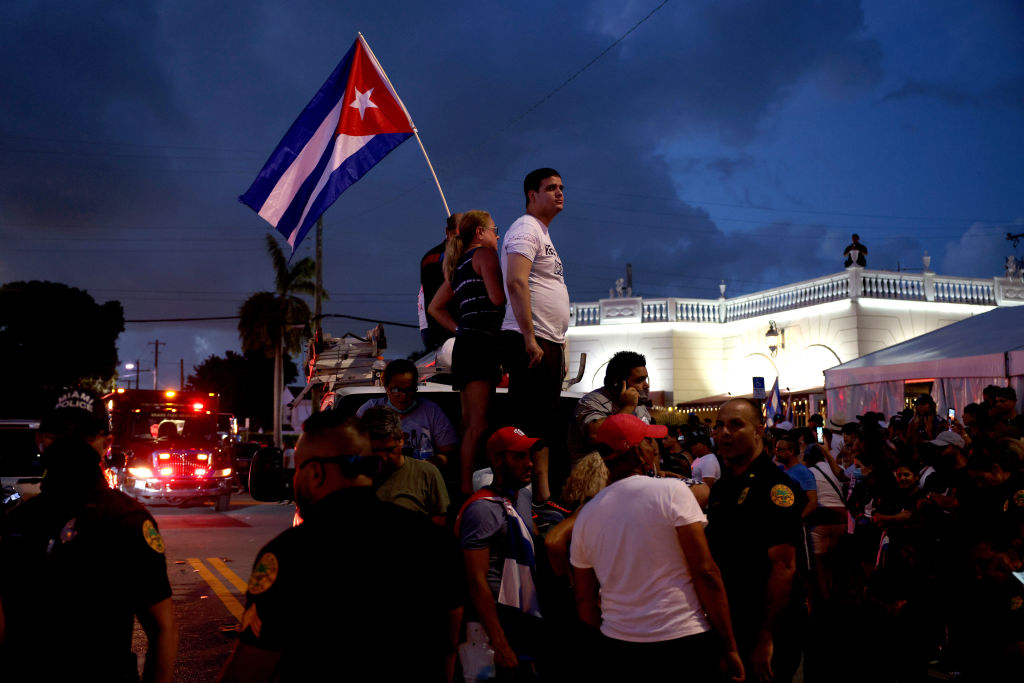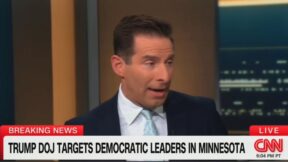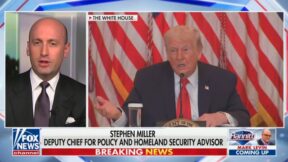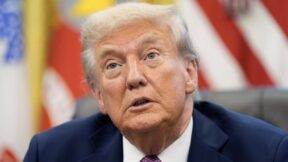Historic Protests Break Out Across Cuba After Months of Shortages, Cuban-Americans March in Miami to Show Support

Photo by Anna Moneymaker/Getty Images.
Historic protests broke out across Cuba on Sunday, some of the largest that the island nation has seen since the Castro regime seized power in the 1950s. The protests come after months of shortages of food, medicine, and other necessities, exacerbated by the Covid-19 pandemic, but many of the signs and slogans chanted by the protesters — “¡Libertad!” (“Freedom!”) — also expressed long-running opposition to the oppression of Cuba’s communist regime.
In the Little Havana neighborhood of Miami, Florida, home to many Cuban-Americans, hundreds marched to show solidarity with the protesters in Cuba, joined by Miami Mayor Francis Suarez, Miami-Dade County Mayor Daniella Levine Cava, and other local elected officials.
“Cubans are worthy and ready to rule themselves without tyranny,” Suarez told reporters. “It can end today and it must end today. The implications of this moment can mean freedom for millions of people in the hemisphere, from Nicaraguans and Venezuelans and so many more.”
“We stand united with the Cuban people on the island and across our community,” said Levine Cava in a statement, “at this historic moment in the struggle for freedom, dignity, and basic human rights – may their courageous actions bring about real change and move us closer to the dream of a free Cuba.”
A section of SW 8th Street — known locally as “Calle Ocho” — was closed to vehicles as the crowd grew. Many gathered outside Versailles, a popular Cuban restaurant in the area that has often been the backdrop for protest movements. After dictator Fidel Castro died in 2016, people celebrated in the streets outside Versailles for days.
Laura Rodriguez, a reporter with WTRF in Miami, appeared on MSNBC’s This Week with Joshua Johnson to discuss the events in Cuba, and how the community in Miami was responding.
Rodriguez noted that both in Cuba and in Miami, protesters were using slogans like “SOS Cuba” and “Patria y Vida,” Spanish for “Homeland and life” — a direct rebuke to the dictatorship’s chosen motto, “¡Patria o Muerte, Venceremos!” (“Homeland or death, we shall overcome!”). #SOSCuba and #PatriaYVida were trending on Twitter Sunday evening.
“This is not letting up,” said Rodriguez, saying that the crowd had continued to grow as the night went on. “Many of the people I’ve interviewed tell me, really, that they just want to support the Cuban people who are protesting on the island and express their solidarity with the Cuban people. They say again that they stand with them, and this is a historic moment for the people on the islands, because there has not been a protest of this magnitude in decades…there have been specific small groups but never of this magnitude and in so many cities on the island.”
Former Rep. Carlos Curbelo (R-FL), the son of Cuban exiles who was born and raised in Miami, told Johnson that the last time there were significant protests in Cuba was in 1994 when Fidel Castro was still in power, and he had told angry Cubans to leave and go to the U.S. About 40,000 Cubans came by raft to Florida in 1994.
But now, said Curbelo, the law had changed. “This creates a far more difficult and complex situation for the Cuban regime,” he said. “People are angry, people are hungry, people are displeased with the government’s response to the pandemic, and they’re desperate. They also want to be free. They want the basic human rights that Cubans on the island have been denied for over 62 years.”
Curbelo said that the day’s protests were “dramatic” and “really unlike anything we’ve ever seen in Cuba.” Many people in Miami, he said, “think this could be the end of the Cuban regime.”
Rodriguez concurred that there had never been a “protest of this magnitude on the island,” mentioning that she had covered the aftermath of Fidel Castro’s death and the current atmosphere felt “very similar.”
“I would say there are even more people here now,” she said, “because people actually feel that change might come.”
“People here in Miami are pushing out a message, telling the people in Cuba to keep going, keep on fighting the good fight, we stand with you.”
Curbelo later tweeted his appreciation to Johnson for covering the “ongoing historic protests” in Cuba, saying that it was “meaningful for respected national journalists to shine a light on the island at this critical moment.”
Grateful to @NBCJoshua & @TheWeekMSNBC for covering the ongoing historic protests in #Cuba. Cuban-Americans of all persuasions want freedom & a better life for all Cubans. It is meaningful for respected national journalists to shine a light on the island at this critical moment. https://t.co/2IzJ0EIqHa
— Carlos Curbelo (@carloslcurbelo) July 12, 2021
Mediaite reached out to Curbelo for comment and asked him what response he was hoping to see from President Joe Biden’s administration.
“The Biden Administration must be unequivocal and explicit in its support for the Cuban people at this critical hour,” said Curbelo. “This is a major policy and political opportunity for the President. They cannot afford to fumble.”
Sen. Marco Rubio (R-FL) was more direct in his criticism of the Biden White House, posting several tweets with video messages expressing support for the protesters and calling out Biden’s silence on the topic.
The people of #Cuba bravely take to the streets against 62 years of socialist tyranny
12 hours later President @joebiden @POTUS has yet to say a word about it #SOSCuba #PatriaYVida
— Marco Rubio (@marcorubio) July 12, 2021
Spread the word! #Cuba wants freedom not socialism #SOSCuba #PatriaYVida pic.twitter.com/tDFN1QNHtr
— Marco Rubio (@marcorubio) July 12, 2021
Rubio also called out a tweet from a State Department official as “ridiculous.”
This is a ridiculous tweet from @StateDept
People in #Cuba are protesting 62 years of socialism, lies,tyranny & misery not “expressing concern about rising COVID cases/deaths”
Why is it so hard for @potus & the people in his administration to say that? #SOSCuba #PatriaYVida https://t.co/vLt8SCUXeK pic.twitter.com/gP0KapjvnQ
— Marco Rubio (@marcorubio) July 12, 2021
Watch the video above, via MSNBC.





Comments
↓ Scroll down for comments ↓